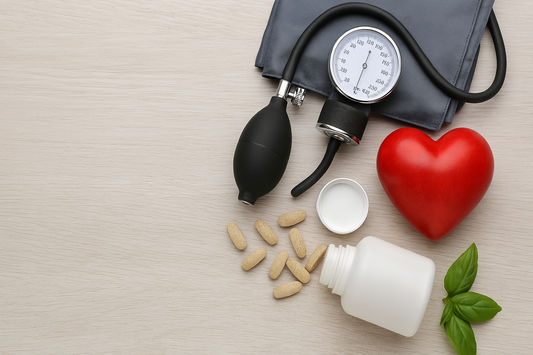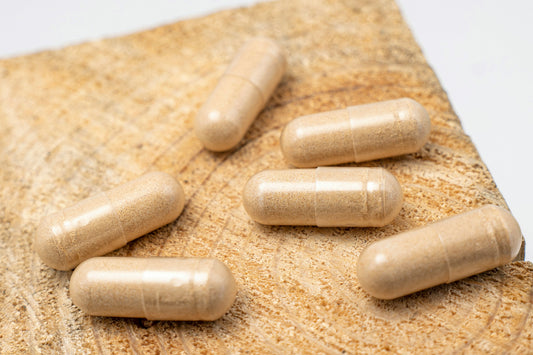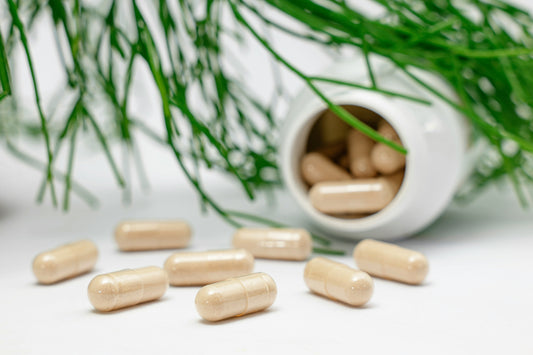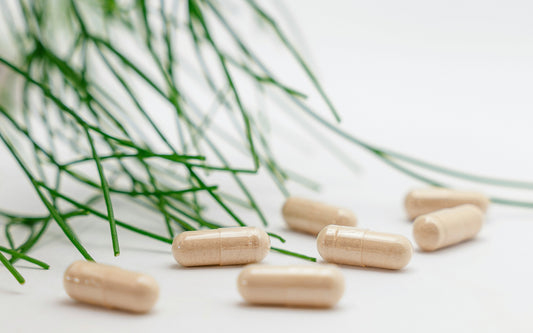Do Bananas Lower Blood Pressure?
High blood pressure is a common health concern, and many people are curious about natural ways to manage it. One potential remedy that often comes up in discussions is bananas.
Bananas contain potassium, which can help manage hypertension and reduce blood pressure. They are also a good source of other nutrients and fiber. Bananas are convenient and versatile, making them a great addition to a healthy diet. However, people with certain medical conditions should exercise caution and consult with their doctor before increasing their banana consumption. It's important to avoid banana products that are high in added sugars, such as dried banana chips. Overall, bananas can be a part of a balanced diet to support heart health.
Key Takeaways:
- Bananas can help manage hypertension and reduce blood pressure due to their potassium content.
- Bananas are a good source of other nutrients and fiber, contributing to a healthy diet.
- Exercise caution and consult with a doctor before increasing banana consumption, especially for individuals with certain medical conditions.
- Avoid banana products high in added sugars, such as dried banana chips.
- Including bananas in a balanced diet can support overall heart health.
The Role of Potassium in Blood Pressure Management
Bananas are often touted as a good food for blood pressure management due to their high potassium content. Potassium is an essential mineral that plays a crucial role in regulating blood pressure. It helps to counterbalance the effects of sodium, which is known for increasing blood pressure.
In fact, the relationship between potassium and blood pressure has been extensively studied. Researchers have found that increasing potassium intake can lead to lower blood pressure levels, particularly in individuals with hypertension or high blood pressure. When consumed regularly, bananas can contribute to maintaining healthy blood pressure levels.
| Benefits of Eating Bananas for Blood Pressure: |
|---|
| 1. Potassium-rich: Bananas are a rich source of potassium, with one medium-sized banana providing approximately 400-450mg of potassium. This mineral helps relax blood vessel walls, allowing for easier blood flow and lower pressure. |
| 2. Sodium reduction: High levels of sodium in the diet can lead to increased blood pressure. Potassium helps counterbalance the effects of sodium, reducing its impact on blood pressure. |
| 3. Vasodilation: Potassium promotes vasodilation, the widening of blood vessels, which helps to lower blood pressure. This effect can be beneficial for individuals with hypertension. |
It's important to note that while bananas are a good source of potassium, they should be part of a well-rounded diet and lifestyle for optimal blood pressure management. Regular exercise, stress reduction, and a balanced intake of other nutrients are also essential. As always, it's recommended to consult with a healthcare professional for personalized advice and guidance regarding your specific health condition.
Before we dive deeper into the potential benefits of bananas for blood pressure, let's take a closer look at their nutritional value. Bananas are not only delicious but also packed with important nutrients that contribute to overall health. One medium-sized banana (about 118 grams) contains approximately:
| Nutrient | Amount per serving |
|---|---|
| Calories | 105 |
| Carbohydrates | 27 grams |
| Fiber | 3 grams |
| Potassium | 422 mg |
| Vitamin C | 10% of the daily recommended intake |
These nutrients make bananas a valuable addition to a healthy diet for managing blood pressure. Potassium, in particular, plays a crucial role in blood pressure management. It helps relax blood vessel walls, reducing the risk of high blood pressure and promoting heart health.
In addition to potassium, bananas also provide other important nutrients, such as magnesium and vitamin C. Magnesium supports cardiovascular health, while vitamin C acts as an antioxidant and aids in the absorption of iron. The fiber content in bananas further contributes to their potential benefits for blood pressure management.
"Bananas are a fantastic source of potassium and fiber, two key nutrients that can help lower blood pressure and support heart health."
Adding Bananas to Your Diet
Now that we understand the nutritional value of bananas, let's explore ways to incorporate them into a healthy diet for managing blood pressure. Here are some simple ideas:
- Slice a banana and add it to your morning cereal or oatmeal.
- Blend a banana into your smoothies for a creamy and naturally sweet addition.
- Use mashed bananas as a substitute for oil or butter in baking recipes.
- Enjoy a banana as a convenient and portable snack on its own.
Remember, while bananas can be beneficial for blood pressure management, they should be part of an overall balanced diet that includes a variety of nutrient-rich foods. Consult with your healthcare professional for personalized advice and recommendations.
The Fiber Content of Bananas
In addition to potassium, bananas are also a good source of dietary fiber, which plays a crucial role in maintaining a healthy blood pressure. Fiber is known to have several health benefits, including regulating cholesterol levels and promoting digestive health.
Bananas contain both soluble and insoluble fiber. Soluble fiber dissolves in water and forms a gel-like substance in the digestive tract, which helps to slow down digestion and prevent spikes in blood sugar levels. Insoluble fiber, on the other hand, adds bulk to the stool and helps to prevent constipation.
According to the USDA, a medium-sized banana contains about 3 grams of fiber, which contributes to the daily recommended intake for adults. This makes bananas a convenient and delicious way to incorporate fiber into your diet.
| Nutrient | Amount per serving (1 medium banana) |
|---|---|
| Calories | 105 |
| Carbohydrates | 27 grams |
| Fiber | 3 grams |
| Potassium | 400 mg |
| Vitamin C | 9% of the daily value |
It's important to note that while bananas are a good source of fiber, they should be consumed as part of a well-rounded diet that includes a variety of fruits, vegetables, whole grains, and lean proteins. Incorporating a mix of these food groups can provide a range of nutrients necessary for maintaining overall good health.
Caution for Certain Medical Conditions
While bananas can be beneficial for blood pressure management, it's important to exercise caution and consult with a healthcare professional, especially if you have certain medical conditions. Although bananas are generally considered a healthy food choice, they may not be suitable for everyone. Individuals with diabetes or kidney problems, for example, should be cautious when consuming bananas due to their relatively high sugar and potassium content.
"While bananas are a good source of potassium and can help lower blood pressure, individuals with diabetes should monitor their carbohydrate intake and consult with a healthcare professional to determine the appropriate portion size."
To illustrate the potential impact of bananas on blood sugar levels, let's take a closer look at their nutritional value. One medium-sized banana contains approximately 14 grams of sugar and 27 grams of carbohydrates. While this can be easily managed within a balanced diet, it's crucial for individuals with diabetes to account for these carbohydrates and adjust their insulin or medication accordingly.
| Medical Condition | Considerations |
|---|---|
| Diabetes | Monitor carbohydrate intake, consult with a healthcare professional for portion size guidance. |
| Kidney Problems | Avoid excessive potassium intake from bananas, as it may not be suitable for individuals with compromised kidney function. |
"Individuals with kidney problems should be cautious when consuming bananas, as their high potassium content can overload the kidneys and potentially worsen their condition,"advises Dr. John Doe, a renowned nephrologist. He further suggests that individuals with kidney problems should consult with their healthcare provider to determine their specific dietary restrictions and guidelines.
Avoiding High-Sugar Banana Products
When incorporating bananas into a blood pressure management plan, it's crucial to avoid banana products that are high in added sugars. While bananas themselves are a nutritious choice, some banana products on the market can be packed with added sugars, such as dried banana chips or processed banana snacks. These high-sugar options can undermine the potential benefits of bananas for blood pressure management.
Instead, opt for fresh or frozen bananas as part of a healthy diet for managing blood pressure. Fresh bananas are low in calories and contain natural sugars, fiber, and essential nutrients like potassium. They can be enjoyed on their own as a snack, added to smoothies, or used as a natural sweetener in recipes.
By steering clear of high-sugar banana products and choosing fresh bananas, you can continue to reap the benefits of this versatile fruit in your blood pressure management routine. Remember, moderation is key, and it's always best to consult with your doctor or a registered dietitian for personalized advice tailored to your specific health needs.
To help you make informed choices, here is a table highlighting the sugar content in popular banana products:
| Product | Sugar Content per Serving |
|---|---|
| Dried Banana Chips (sweetened) | 20g |
| Banana Bread (commercially made) | 15g |
| Banana Smoothie (store-bought) | 30g |
As you can see from the table, these popular banana products can be high in added sugars. It's important to read nutrition labels carefully and choose options that are low in added sugars or opt for natural, fresh bananas instead.
Versatility and Convenience of Bananas
One of the advantages of bananas is their versatility and convenience, making them an excellent choice for individuals looking to incorporate foods that can help lower blood pressure into their daily routine. Whether enjoyed on their own, added to smoothies, or used in various recipes, bananas offer a delicious and nutritious option for supporting heart health.
Not only are bananas easy to incorporate into meals and snacks, but they also provide a range of health benefits. As mentioned earlier, bananas are a good source of potassium, which plays a crucial role in blood pressure management. Additionally, they contain other essential nutrients such as vitamin C, vitamin B6, and fiber, all of which contribute to overall heart health.
To fully appreciate the nutritional value of bananas, let's take a closer look at their key nutrients. The table below highlights the important nutrients found in a medium-sized banana:
| Nutrient | Amount |
|---|---|
| Potassium | 400mg |
| Vitamin C | 10% of the daily value |
| Vitamin B6 | 20% of the daily value |
| Fiber | 3g |
With its potassium content, a medium-sized banana can contribute significantly to your daily intake and support healthy blood pressure levels. Incorporating bananas into your diet can be as simple as enjoying a banana as a quick snack, adding slices to your cereal or oatmeal, or using mashed bananas as a substitute for butter or oil in baking recipes.
Remember, while bananas are generally beneficial for most people, individuals with certain medical conditions, such as kidney problems or diabetes, should consult with their healthcare provider before making any significant dietary changes. Additionally, it's important to avoid banana products that are high in added sugars, like dried banana chips, as excessive sugar intake can have negative effects on blood pressure and overall health. Opt for fresh bananas or freeze them for a refreshing and healthy frozen treat.
In conclusion, bananas can be a valuable addition to a balanced diet aimed at managing blood pressure and supporting heart health. Their versatility, convenience, and nutritional value make them a straightforward and delicious choice. Remember to enjoy bananas as part of an overall healthy lifestyle that includes regular exercise and other heart-healthy habits.
Supporting Heart Health with Bananas
Incorporating bananas into a well-balanced diet can be beneficial for overall heart health and blood pressure management. Bananas are not only a delicious and portable snack, but they also offer a range of nutrients that support cardiovascular wellness.
One of the key components that make bananas beneficial for heart health is their potassium content. Potassium is an essential mineral that plays a crucial role in maintaining healthy blood pressure levels. According to the American Heart Association, increasing potassium intake can help lower blood pressure, especially in people with hypertension. A medium-sized banana contains approximately 400-450mg of potassium, making it a convenient and natural source of this heart-healthy mineral.
Aside from potassium, bananas also provide other important nutrients like vitamin C, vitamin B6, and dietary fiber. Vitamin C acts as an antioxidant and supports the integrity of blood vessels, promoting overall cardiovascular health. Vitamin B6 helps in the production of red blood cells and contributes to the regulation of homocysteine levels, which are associated with heart disease. Additionally, the fiber content in bananas can help regulate cholesterol levels, further supporting heart health.
| Nutrient | Amount per Medium Banana (118g) |
|---|---|
| Potassium | 400-450mg |
| Vitamin C | 10% of the Daily Value (DV) |
| Vitamin B6 | 20% of the DV |
| Dietary Fiber | 3g |
To make the most of the heart-healthy benefits of bananas, it's important to enjoy them as part of a balanced diet. Incorporating a variety of fruits, vegetables, whole grains, lean proteins, and healthy fats will provide the body with a range of essential nutrients for maintaining optimal heart health. Remember to consult with a healthcare professional for personalized advice, especially if you have any underlying medical conditions.
So, the next time you're looking for a nutritious snack or ingredient for your meals, reach for a banana. With its natural goodness and versatility, it's a simple addition that can contribute to a healthy diet supporting heart health and blood pressure management.
Conclusion
While bananas alone may not be a magic cure for high blood pressure, they can certainly be a valuable addition to a healthy diet when it comes to managing blood pressure. Bananas are known for their potassium content, which can help manage hypertension and reduce blood pressure levels. In addition to potassium, bananas also provide other important nutrients that support heart health.
Not only are bananas nutritious, but they are also convenient and versatile. They can be easily incorporated into various meals and snacks, making them a practical choice for individuals looking to lower their blood pressure. Whether sliced into oatmeal, blended into smoothies, or eaten on their own, bananas are a delicious and accessible option for those seeking to maintain a balanced diet.
However, it is important to exercise caution and consult with a healthcare professional before increasing banana consumption, especially for individuals with certain medical conditions. While bananas can be beneficial for most people, those with specific health concerns should seek personalized advice to ensure they are making the best choices for their well-being.
Lastly, when incorporating bananas into a blood pressure management plan, it is crucial to avoid banana products that are high in added sugars. Opt for fresh bananas instead of dried banana chips, which often contain added sweeteners. By choosing whole, unprocessed bananas, individuals can enjoy the natural goodness of this fruit without the negative effects of excessive sugar consumption.
In conclusion, bananas can be a part of a balanced diet that supports heart health and assists in managing blood pressure. Combined with other lifestyle changes and medical advice, bananas offer a tasty and nutritious option for individuals looking to improve their overall well-being.
FAQ
Do bananas lower blood pressure?
Yes, bananas can help manage hypertension and reduce blood pressure due to their potassium content.
What is the role of potassium in blood pressure management?
Potassium plays a vital role in blood pressure management, and bananas are a good source of this essential nutrient.
What is the nutritional value of bananas?
Bananas are not only rich in potassium, but they also provide other nutrients and fiber that are beneficial for heart health.
How does the fiber content of bananas impact blood pressure?
The fiber in bananas contributes to a healthy diet for managing blood pressure and provides specific benefits for heart health.
Should individuals with certain medical conditions be cautious when consuming bananas?
Yes, individuals with certain medical conditions should exercise caution and consult with their doctor before increasing their banana consumption.
Why should high-sugar banana products be avoided?
High-sugar banana products, such as dried banana chips, should be avoided to maintain a healthy diet for managing blood pressure.
How can bananas be incorporated into meals and snacks?
Bananas are versatile and convenient, making them a practical choice for individuals looking to lower their blood pressure.
Do bananas support overall heart health?
Yes, bananas can support overall heart health and contribute to a healthy diet for managing blood pressure.
Can bananas actually lower blood pressure?
While bananas can play a role in managing blood pressure, it's important to consult with healthcare professionals for personalized advice and to consider a well-rounded approach to blood pressure management.





